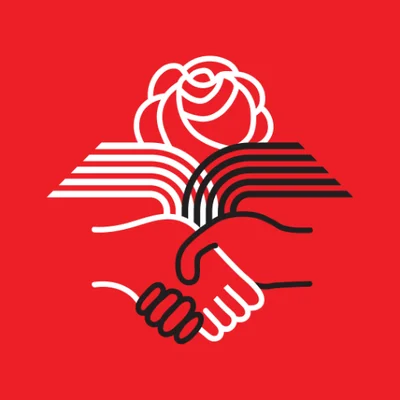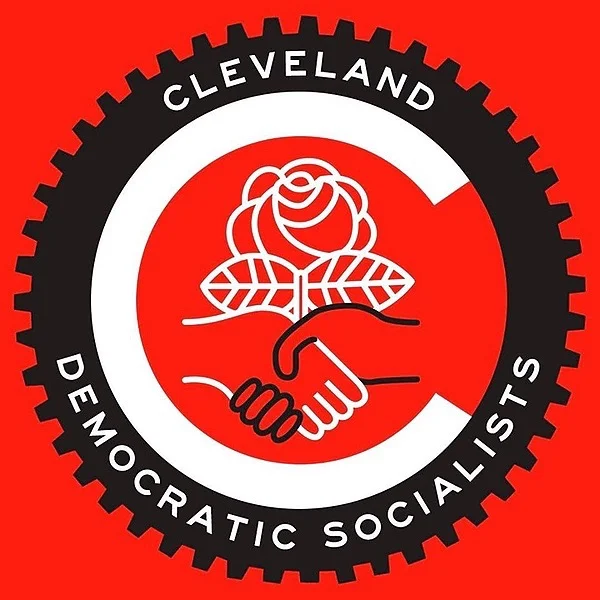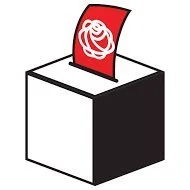

Portland DSA Endorses Parks Levy, Calls for More Ambitious Public Investment

The Nov. 4 Parks Levy effort becomes part of the Chapter’s emerging Family Agenda.
On September 14, members of the Portland chapter of the Democratic Socialists of America voted to endorse the upcoming Portland Parks and Recreation Levy 2025 Ballot Initiative as part of its Family Agenda campaign, and is training members to canvass Portland communities in support.
The 2020 voter-approved levy to support parks and recreation operations expires at the end of the fiscal year. If the Nov. 4 levy is not approved, the Parks operating budget would be cut nearly in half, resulting in far fewer programs and services. The Parks Levy ensures Portland can maintain parks and community centers by increasing the property tax rate by 60 cents per $1,000 in assessed property value. That means a median homeowner would pay about $26 per month and the median commercial property owner would pay around $37 per month.
Why it matters
Parks are about more than recreation: they are sites of community, climate resilience, public health, and intergenerational, cross-cultural connection. In a city increasingly shaped by privatization and budget cuts, securing resources for public parks is essential. Local governments around the country have found that investing in parks, and providing equitable access to them, can increase economic vitality and make their cities more attractive for existing and potential new residents.
“The levy is an important piece of our community’s future, particularly for renters who rely on city parks to access the outdoors. With everything costing people more these days, parks are a great example of the community coming together both literally and figuratively, to ensure we have free outdoor spaces for all. My coworkers and I are the first line of defense to make sure these spaces are welcoming and well-maintained. I wish we had a more secure funding model but for now, the levy is essential.”
- Ryan Heidt, horticulturist for the City of Portland and LIUNA 483 member (Parks & Rec workers)
The wealth is here, if we want it
Contrary to the stories that wealthy people like to tell, we know that the rich only get richer by exploiting their workers: as of 2024, the average CEO-to-worker pay ratio for major companies was $285-to-$1. We also know that “tax flight” is a myth cooked up by the city’s elite to get out of paying their fair share. That’s why Portland DSA supported City Councilor Steve Novick’s proposal earlier this year to increase the existing surcharge on corporations that have highly skewed ratios of CEO-to-worker pay, in addition to DSA member and City Councilor Mitch Green’s Healthy Parks, Healthy Climate Plan which would have built on Novick’s proposal. These are examples of the creative policy-making this city desperately needs right now.
At the same time, the 2025 Parks Levy is necessary but insufficient. This is especially true given that the Portland Metro Chamber threatened a campaign of opposition to the levy if the City Council didn’t reduce the amount, thereby protecting the Chamber’s elite base from having to pay a more equitable share. While the levy will provide urgently needed funding, relying on periodic levies to sustain critical infrastructure is an inequitable and unstable approach. Public goods should be guaranteed through progressive, permanent, and reliable funding—paid for by taxing the wealthy and corporations who benefit from our shared resources, not through regressive measures that disproportionately impact the working class. That’s why we need more elected leaders with the guts to push back against the arm-twisting elites at the Portland Metro Chamber and to stand up for working people.
“For years, Portland DSA members have shown up and testified for more sustained funding for the essential services that parks and community centers provide. The 2025 Portland Parks Levy will be no different. We’ll engage our neighbors and push to pass the levy while remaining crystal clear: a longer term funding structure is sorely needed and we’re ready to fight for that too.”
- Olivia Katbi, parent and co-chair of Portland DSA.
We need you. Yes, you!
Portland DSA believes in vibrant public spaces as a collective right. Do you? Then sign up to stay in touch on future events and actions. Over the long term, the City Council must put more resources in public hands, but right now passing this levy is our best shot at retaining what we love about our parks and community centers.
About the Parks Levy
The 2020 Parks Levy was a success for the city, as shown through both an independent audit and reports from the existing Parks Levy Oversight Committee. The 2025 Parks Levy would:
Preserve Program Access
- Continue free and discounted recreation programs for families experiencing poverty
- Provide free lunch & play programs, movies, concerts
- Preserve classes, community center hours, arts and cultural centers, parks, pools
Ensure Neighborhood Parks Maintenance
- Daily restroom cleaning, trash pickup
- Routine maintenance, minor repairs
- Repair or renovate facilities like playgrounds, restrooms, pools
- Park ranger safety patrols, incident responses
Protect Nature in a Changing Climate
- Plant, maintain trees
- Preserve natural areas, trails, water quality, wildlife habitat
- Clear brush, maintain emergency access routes to reduce wildfire risk
About Portland DSA’s Family Agenda
Families, however you define them, are a crucial part of a movement for a better world. Through the Family Agenda campaign, Portland DSA seeks to build a culture of collective care for working people, children and elders in our community, while rejecting the right-wing nationalist definition of family. We will make our voices heard at the city, county, and state to stop the slashing of programs that families rely on, and to demand that our parks, community centers, and after-school care programs are fully funded. We’ll be working to expand public support for public education and fight for full implementation of universal preschool at the county level – a policy that Portland DSA fought for and won in 2020.
Contact: family.agenda@portlanddsa.org
The post Portland DSA Endorses Parks Levy, Calls for More Ambitious Public Investment appeared first on Portland DSA.


DSA’s Success: Lakewood Passes First-of-its-Kind “Gender Freedom Policy”
From the beginning, the Trans Liberation Priority Project has put on its agenda passing trans sanctuary city legislation in the cities of Lakewood and Cleveland.
Lakewood is our first success.
The Cleveland DSA Chapter first submitted draft legislation to the City of Lakewood in April 2025 and showed up in support of this at a city council meeting, with numerous DSA members who resided in Lakewood giving testimony. Afterwards, representatives from DSA kept in touch with Council President Sarah Kepple about this for several months. In addition, we attended several events in Lakewood and canvassed, gathering resident signatures in support of the legislation.
The City, after consulting with leading local and state LGBTQ rights organizations, transformed our original draft into a Gender Freedom Policy which enshrines and upholds transgender rights in Lakewood. Sarah joined a DSA call in September and discussed the policy further. The legislation was formally brought to the floor of council in September and passed on October 6th, 2025—and we gained an earned media opportunity by being featured in an article in Ohio queer news publication The Buckeye Flame!
What does this show? Our efforts work. There is strength in numbers. Public support can sway minds. There is an appetite to protect our most vulnerable populations in Ohio, despite what legislation our state and federal governments pass. Persistent, polite communication and pressure works with local politicians. Blue cities can be beacons of hope, even in red states.
Our goal is to emulate this in the City of Cleveland. Through concentrated, democratic efforts with local partners and politicians, we aim to encourage Cleveland to pass similar legislation. The fight for another victory is only just beginning, and we are ready for it!
The post DSA’s Success: Lakewood Passes First-of-its-Kind “Gender Freedom Policy” appeared first on Democratic Socialists of America.


Why "Useless" Actions Matter: A Defense of Getting People Moving


DSA's 2025 National Convention: Red Slate Reflections


Hyperlocal, Hyper Effective: ANCs and Working-Class Governance


The Legend of David Schwartzman


Thinking of going to DSA National Convention? Here’s what to know!


Organizing Greenbelt against fascism w/ Frankie Santos Fritz


Retail Rent: A Leech on Our Communities


Endorsement: Frankie Fritz, Greenbelt Mayor & City Council
DSA is proud to endorse Frankie Santos Fritz for Greenbelt Mayor & City Council!
Frankie is a longtime local organizer and branch leader with Metro DC DSA. He is a proud member of a union family and plans to introduce a collective bargaining ordinance to cover the city workforce. Frankie is also a member of the Greenbelt Home Inc housing co-op and is championing laws to empower tenants who wish to convert their communities to cooperative or social housing.
Frankie plans to expand rent stabilization protections to cap annual rent increases with the rate of inflation. He is dedicated to supporting federal workers who are under attack from DOGE and the federal administration. His top transportation priority for the next term would be getting the long-promised Capital Bikeshare station built at the Greenbelt Metro Station and getting it stocked with numerous E-Bikes.
Check out the rest of Frankie’s campaign priorities!

Who are our other candidates?
DSA’s Nationally-endorsed socialist candidates are running for local office in Washington, Minnesota, Colorado, Michigan, New York, New Jersey, Maryland, and Massachusetts!
Our candidates are incredible fighters for the working class, championing rent stabilization and higher minimum wages, while also protesting ICE’s human rights violations.
This year, we launched a rotating fundraising slate and held phonebanks to foster cross-chapter solidarity. And we’ve raised over $100,000!